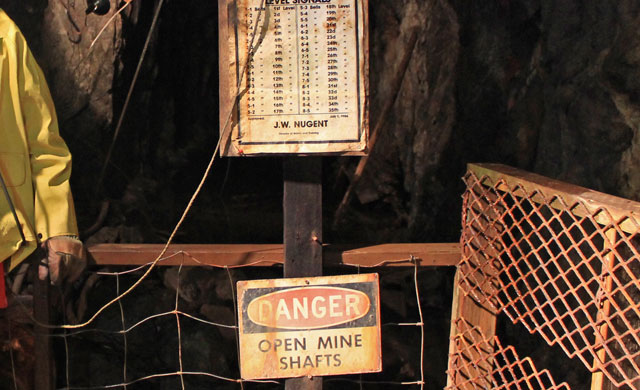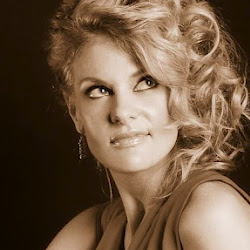London open: Stocks slide as Russia hit with tougher sanctions

London stocks slid in early trade on Monday after the West imposed tougher sanctions on Russia, which has now put its nuclear forces on high alert.
At 0845 GMT, the FTSE 100 was down 1.1% at 7,404.35, while oil prices jumped to as high as $105 a barrel.
Walid Koudmani, chief market analyst at XTB, said: “While stocks saw some signs of recovery towards the end of last week with Asian, European and US markets recovering some of their losses following the invasion of Ukraine from Russia, stock prices could have a very difficult week ahead as tensions escalate and more sanctions continue to be announced.
“Over the weekend, the European union announced a variety of sanctions on Russia including limiting its access to EU airspace and prohibiting certain banks from utilising the Swift banking system, a move which could have catastrophic effects on the Russian economy and was by some considered to be on the most potentially effective deterrents.
“Investors are taking that into consideration and while the war for Ukraine rages on, this week is set to be one of the most volatile across markets with the prices of stocks and commodities being extremely susceptible to any kind of sanction and geopolitical instability. If the situation continues to escalate, risky assets like stocks and crypto currencies could be seeing another week of losses while investors continue to rush to safe havens like gold and the USD which benefited greatly last week from the shocking turn of events.”
Investors will be keeping an eye out for further developments in the Ukraine crisis, with high-level talks due to take place between Kyiv and Moscow later in the day on the Ukraine-Belarus border.
In equity markets, Anglo-Russian precious metals miner Polymetal and Russian steelmaker Evraz tumbled, suffering the heaviest losses on the FTSE 100.
BP lost ground after the oil giant said it will exit its near-20% holding in state-owned oil giant Rosneft in response to Russia’s invasion of Ukraine, at an expected cost of around $25bn.
Susannah Streeter, senior investment and markets analyst at Hargreaves Lansdown, said: “Just how BP will manage this exit is unclear but it looks like it will be highly difficult for the company to recover anywhere near what was considered to be the full value of the stake, estimated to be $14 billion at the end of 2021 and it will also strip BP of lucrative dividends which were due to pour in from the Russian business.”
Primark owner AB Foods was also in the red despite saying it expects half-year sales and adjusted operating profit to be strongly ahead of last year and higher than interims in pre-Covid in 2020.
Travel-related stocks were under the cosh again after the EU announced over the weekend that it was closing its airspace to Russian aircraft, with BA owner IAG, budget airlines Wizz and easyJet and travel firm Tui all sharply lower.
On the upside, defence companies BAE Systems and Babcock, defence technology firm Qinetiq and specialist defence manufacturer Chemring all rallied. Qinetiq was also benefitting from a rating upgrade at JPMorgan.
Top 10 FTSE 100 Risers
| # | Name | Change Pct | Change | Cur Price | |
|---|---|---|---|---|---|
| 1 | 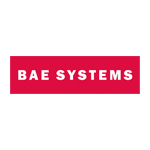 |
Bae Systems Plc | +13.84% | +90.40 | 743.40 |
| 2 | 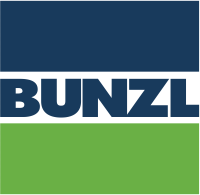 |
Bunzl Plc | +3.73% | +103.00 | 2,863.00 |
| 3 | 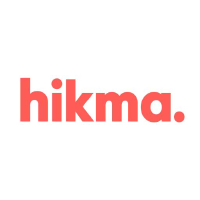 |
Hikma Pharmaceuticals Plc | +2.82% | +55.00 | 2,002.00 |
| 4 |  |
Rightmove Plc | +2.21% | +14.20 | 657.60 |
| 5 |  |
Fresnillo Plc | +1.74% | +12.40 | 726.00 |
| 6 | 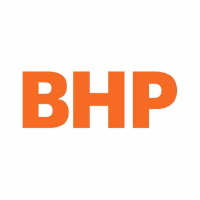 |
Bhp Group Limited | +1.58% | +39.00 | 2,511.50 |
| 7 | 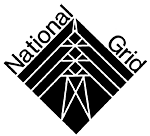 |
National Grid Plc | +1.42% | +15.60 | 1,116.20 |
| 8 | 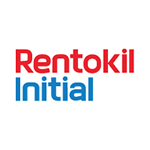 |
Rentokil Initial Plc | +1.29% | +6.40 | 501.20 |
| 9 |  |
Intertek Group Plc | +1.23% | +64.00 | 5,284.00 |
| 10 |  |
Ocado Group Plc | +1.16% | +15.50 | 1,349.50 |
Top 10 FTSE 100 Fallers
| # | Name | Change Pct | Change | Cur Price | |
|---|---|---|---|---|---|
| 1 |  |
Evraz Plc | -20.15% | -41.25 | 163.45 |
| 2 |  |
Mondi Plc | -6.44% | -115.00 | 1,671.50 |
| 3 | 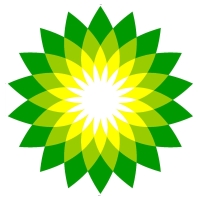 |
Bp Plc | -6.24% | -23.60 | 354.90 |
| 4 | 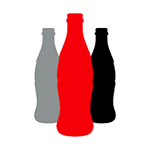 |
Coca-cola Hbc Ag | -6.18% | -132.00 | 2,004.00 |
| 5 |  |
Easyjet Plc | -5.56% | -34.80 | 591.40 |
| 6 | 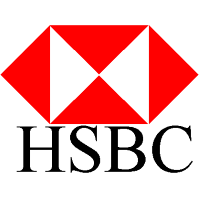 |
Hsbc Holdings Plc | -5.33% | -28.70 | 509.30 |
| 7 |  |
Standard Chartered Plc | -4.82% | -27.00 | 532.60 |
| 8 |  |
Tui Ag | -4.79% | -12.10 | 240.30 |
| 9 |  |
Prudential Plc | -4.73% | -56.00 | 1,128.00 |
| 10 |  |
Barclays Plc | -4.44% | -8.38 | 180.52 |
Europe open: Shares hit the red as West tightens screw on Russia
European stocks were sharply lower at the open on Monday as the West ratcheted up financial pressure on Russia in response to its invasion of Ukraine.
The pan-European Stoxx 600 index was down 1.3% in early deals with Germany’s DAX and France’s CAC 40 down more than 2%. Investors were also spooked by President Vladimir Putin putting Russia’s nuclear deterrent on high alert.
Fears of supply shortages saw crude oil jump almost 5% while the Russian rouble plunged by almost 30% to a record low as Russian banks were blocked from the SWIFT global payments system.
Long lines of Russians were seen queuing at bank cash machines to withdraw their money, sparking fears of a run on local financial institutions.
The sanctions hit regional banks with exposure to Russia, including Austria’s Raiffeisen Bank, UniCredit and Societe Generale.
Shares in energy giant BP were on the slide after the company said it was abandoning its stake in Russian state oil company Rosneft at a cost of up to $25bn.
France’s Renault, which controls Russian carmaker Avtovaz, fell 6.9%.
Anglo-Russian miner Polymetal slumped by 37% over the Ukraine crisis, despite the company last week saying it did not expect to be hit by sanctions.
Defence company Rheinmetall surged by 37% after German Chancellor Olaf Scholz on Sunday said the country would sharply increase defence spending to more than 2% of its economic output.
US close: Stocks end session higher despite Russia’s invasion of Ukraine
Wall Street stocks closed higher on Friday despite Russia’s invasion of Ukraine.
At the close, the Dow Jones Industrial Average was up 2.51% at 34,058.75, while the S&P 500 was 2.24% firmer at 4,384.65 and the Nasdaq Composite saw out the session 1.64% stronger at 13,694.62.
The Dow closed 834.92 points higher on Friday, extending gains recorded in the previous session as market participants assessed risks stemming from Moscow’s decision to enter Ukrainian territory.
The Russia-Ukraine situation remained firmly in focus on Friday after news broke that Russia was closing in on the Ukrainian capital of Kyiv, which was said to have been hit by “horrific Russian rocket strikes, according to Ukrainian Foreign Minister Dmytro Kuleba. US Secretary of State Antony Blinken warned only a day earlier that Kyiv “could well be under siege” soon.
Joe Biden has already imposed a number of new sanctions against Russia as part of an effort to isolate Moscow from the global economy, with the White House also authorising additional troops to be stationed in Germany as NATO and its allies attempt to bolster defences across Europe.
A top Ukrainian official said that his country was ready for talks with the Russian Federation, including regarding the neutral status as referred to the North Atlantic Treaty Organisation.
“If talks are possible, they should be held. If in Moscow they say they want to hold talks, including on neutral status, we are not afraid of this,” said Ukrainian presidential advisor Mykhailo Podolyak. “We can talk about that as well. Our readiness for dialogue is part of our persistent pursuit of peace.”
Russian President Vladimir Putin said he was prepared to dispatch a delegation to Minsk for negotiations with their Ukrainian counterparts. Citing presidential press secretary, Dmitry Peskov, Russian daily Kommersant reported that the delegation was set to include representatives of the Ministry of Defence, Foreign Affairs, and the presidential administration.
On the macro front, a key inflation reading showed that prices rose at the fastest rate in almost 39 years in January, according to the Commerce Department, as the core personal consumption expenditures price index rose 5.2% year-on-year – the highest level since April 1983.
Elsewhere, new orders for US manufactured durable goods rose 1.6% month-on-month in January following a revised 1.2% gain in December to beat market expectations for an increase of 0.8%, according to the Census Bureau.
Still on data, the University of Michigan‘s consumer sentiment index was revised higher to 62.8 in February from a preliminary of 61.7 but still pointed to the lowest level of consumer confidence in the past ten years.
Lastly, US pending home sales decreased 9.50% in January, according to the National Association of Realtors.
In the corporate space, Foot Locker shares slumped after the footwear retailer revealed that Nike’s efforts to ramp up its direct-to-consumer operations had forced it to issue weak sales forecasts and MoneyGram said digital revenues reached a record of $277.0m in 2021.
Monday newspaper round-up: Russian banks, Arm, British visa system
The EU has announced it will ban the Russian state-backed channels RT and Sputnik in an unprecedented move against the Kremlin media machine. The European Commission president, Ursula von der Leyen, said: “Russia Today and Sputnik, as well as their subsidiaries, will no longer be able to spread their lies to justify Putin’s war and to sow division in our union. So we are developing tools to ban their toxic and harmful disinformation in Europe.” – Guardian
The Kremlin is scrambling to stave off a run on Russian banks after Western nations announced a barrage of punishing sanctions. Russia’s central bank was also reportedly bringing in new measures to prevent a sell-off of Russian securities. According to Reuters, central bank documents showed that it had ordered market players to reject foreign clients’ bids to sell Russian securities from early Monday morning. – Telegraph
The new chief executive of Arm has ordered a leadership clear-out that will see half of the British microchip company’s top executives leave ahead of a blockbuster float in the next year. Arm’s chief technology officer Dipesh Patel, legal chief Carolyn Herzog and chief strategy officer Jason Zajac have left the company in a reshuffle orchestrated by Rene Haas, The Telegraph understands. – Telegraph
Britain is preparing to launch “the most generous visa system in the world” for company founders and high-skilled workers in an attempt to drive up productivity and economic growth. Government officials are due to open a “scale-up visa” scheme for applications in the next few months that will allow fast-growing companies to automatically hire overseas workers if they have a headcount of at least ten staff and are growing by 20 per cent a year for three years in terms of revenue or employee numbers. – The Times
A pension fund managing the nest-eggs of ten million savers has joined a campaign pressing Unilever to make its food products healthier. The National Employment Savings Trust, which runs pension plans for a third of the British workforce, said that it planned to back a resolution expected to be put to Unilever shareholders in May. – The Times

 Hot Features
Hot Features



